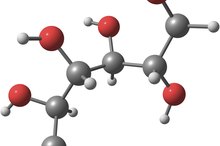What does fact checked mean?
At Healthfully, we strive to deliver objective content that is accurate and up-to-date. Our team periodically reviews articles in order to ensure content quality. The sources cited below consist of evidence from peer-reviewed journals, prominent medical organizations, academic associations, and government data.
- Reproductive Biology and Endocrinology: The Role and Molecular Mechanism of D-Aspartic Acid in the Release and Synthesis of LH and Testosterone in Humans and Rats
- Reproductive Biology and Endocrinology: The Role and Molecular Mechanism of D-Aspartic Acid in the Release and Synthesis of LH and Testosterone in Humans and Rats
- Nutrition Research: D-Aspartic Acid Supplementation Combined With 28 Days of Heavy Resistance Training Has No Effect on Body Composition, Muscle Strength, and Serum Hormones Associated With the Hypothalamo-pituitary-gonadal Axis in Resistance-Trained Men
- Nutrition Research: D-Aspartic Acid Supplementation Combined With 28 Days of Heavy Resistance Training Has No Effect on Body Composition, Muscle Strength, and Serum Hormones Associated With the Hypothalamo-pituitary-gonadal Axis in Resistance-Trained Men
The information contained on this site is for informational purposes only, and should not be used as a substitute for the advice of a professional health care provider. Please check with the appropriate physician regarding health questions and concerns. Although we strive to deliver accurate and up-to-date information, no guarantee to that effect is made.
The Differences Between L-Aspartic Acid & D-Aspartic Acid
L-aspartic acid and D-aspartic acid are often grouped together under the same generic label -- aspartic acid -- but the L- and D-amino acid forms are structurally different, and each one fills specific jobs 1. L-aspartic acid is more abundant in your body, where it helps synthesize proteins and detoxify ammonia 1. D-aspartic acid exists in small amounts in adults, and it influences brain function and hormone production 1.
Structural Difference
Even though both forms of this amino acid are made from identical components, the atoms are connected in a way that makes them mirror images of one another. Both forms have a central core, with a group of atoms attached to the side. Like the thumbs on your hands, these side groups are connected to opposite sides of the core group. This creates a left- and right-handedness, which refers to the way the molecule bends light. L-aspartic acid bends light to the left, while D-aspartic acid bends it to the right 1. The mirror image shapes determine the functions of L- and D-aspartic acid 1.
- Even though both forms of this amino acid are made from identical components, the atoms are connected in a way that makes them mirror images of one another.
- This creates a left- and right-handedness, which refers to the way the molecule bends light.
Roles of L-Aspartic Acid
Acids Found in Apple Juice
Learn More
All but one of the amino acids have D and L forms, but only L-amino acids are used to produce proteins, reports the Medical Biochemistry Page 68. This means that protein production is one of the jobs filled by L-aspartic acid 1. It’s also an essential part of a process in your body called the urea cycle, which is a series of chemical reactions that detoxify ammonia. Like most other amino acids, aspartic acid can be used to synthesize glucose for energy, and it's converted into oxaloacetic acid, which also has a role in energy production 1.
Duties of D-Aspartic Acid
D-aspartic acid works in the nervous and reproductive systems 14. It’s primarily found in the brain and testes, where it triggers the release of hormones, including growth hormone, and helps regulate the synthesis of testosterone. One study found that levels of testosterone were significantly increased when men took a daily dose of supplemental D-aspartic acid for 12 days, according to a report in “Reproductive Biology and Endocrinology” in October 2009 14. But another study published in the October 2013 issue of “Nutrition Research” reported that taking D-aspartic acid did not improve muscle strength in men participating in resistance training 15.
Sources and Recommendations
Glutamine & Glutamic Acid in Whey Protein
Learn More
Aspartic acid isn't an essential amino acid because your body can produce both forms from proteins you consume 1. Aspartic acid is found in high-protein foods such as lean beef, fish, eggs and dairy products, however 1. Other good sources include:
- beans
- lentils
- soybeans
- brown rice bran
- nuts
- brewer’s yeast
While it’s not associated with side effects or toxicity, don’t take high doses of amino acids for a long time without consulting your health care provider. Women who are pregnant or breast-feeding should not take aspartic acid supplements, recommends the University of Utah 17.
Related Articles
References
- Examine.com: D-Aspartic Acid
- Elmhurst College: Urea Cycle
- Elmhurst College: Transamination Reaction
- Reproductive Biology and Endocrinology: The Role and Molecular Mechanism of D-Aspartic Acid in the Release and Synthesis of LH and Testosterone in Humans and Rats
- Nutrition Research: D-Aspartic Acid Supplementation Combined With 28 Days of Heavy Resistance Training Has No Effect on Body Composition, Muscle Strength, and Serum Hormones Associated With the Hypothalamo-pituitary-gonadal Axis in Resistance-Trained Men
- Orthomolecular.org: Proteins/Amino Acids
- University of Utah Health Care: Aspartic Acid
- Medical Biochemistry Page: Chemical Nature of Amino Acids
Writer Bio
Sandi Busch received a Bachelor of Arts in psychology, then pursued training in nursing and nutrition. She taught families to plan and prepare special diets, worked as a therapeutic support specialist, and now writes about her favorite topics – nutrition, food, families and parenting – for hospitals and trade magazines.









